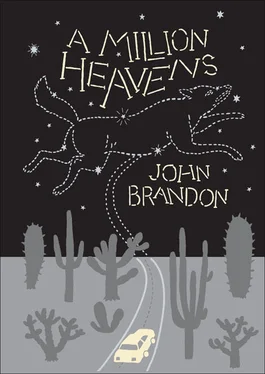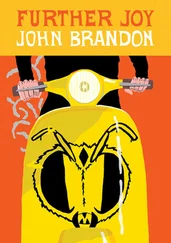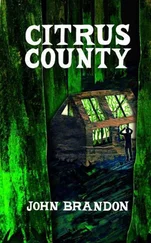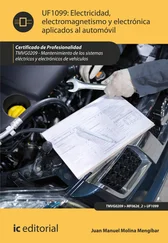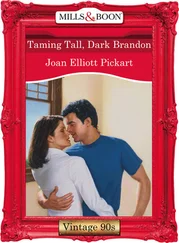“Okay,” said the motel owner. “Rent that shelter.”
Mayor Cabrera hung up the phone. He stared down at the potholders in their drawer, then picked one up and handled it. It was the ochre color of mountains at noon. Mayor Cabrera always brought stew to his sister-in-law’s place when he cooked up a batch. He’d always brought her stew, from way back when her sister was alive, and though he’d quit speaking to his sister-in-law, though he diligently avoided her company because he didn’t want to be reminded of his losses, he’d never quit delivering the stew. It was a way to not feel guilty. For all he knew, she dumped it all out. He always left it on her front porch and rang the bell and drove off like a teenager pulling a prank. One day he’d found a mess of potholders in a plastic bag on the step, with a note that read SELL THESE IN THE LOBBY, WE’LL SPLIT THE PROFITS. He’d picked up bag after bag of the stiff, rectangular cloths. She had no way to know when he was coming, so sometimes the potholders must’ve sat out there for many nights, collecting dew and then drying out and then collecting dew. His sister-in-law had never seemed like a woman to crochet or knit or whatever. She wasn’t that old. Mayor Cabrera wasn’t old. He could clearly recall the days before Cecelia had come along, before his sister-in-law was even his sister-in-law, when she was the spunky sister of his future wife. He thought of a trip the three of them had taken to Taos. They’d gone up in early spring to hike, when the trees would be budding and the streams filling and the birds amorous, and no sooner did they get into town and find a place for breakfast then the sky turned gray and the playful breeze turned into a stiff wind full of icy intent. Mayor Cabrera could remember, like it had happened last weekend, asking the waitress for hot sauce for his hash browns and then becoming aware of the first tiny snowflakes flitting against the windows of the restaurant like confused insects. They couldn’t go hiking and weren’t about to race the storm back to the basin, so they located the cheapest bar in Taos, which didn’t seem all that cheap, and drank the sunless day away. Mayor Cabrera’s wife who wasn’t yet his wife became easier and easier to convince that another round would be a good idea, and Mayor Cabrera, though he couldn’t afford it, kept buying drinks for the locals. At some point what little light had been in the sky was gone and the snow was falling in a perfect endless sheet. The three of them piled into Mayor Cabrera’s old El Camino and pulled away from the bar not knowing where they were headed, using the weather as an excuse to drive slowly. Just outside town they turned down a quiet road lined with identical rental villas, snug-looking, cozy rather than cramped. Mayor Cabrera pulled into an empty driveway and they sat there. The place was unoccupied. Nowadays a villa like that would have as many cameras and alarms as a bank. No one had protested. He could hear it now, his sister-in-law giggling and giggling, nervous and excited, the unspoken and obvious fact of what they were going to do becoming clear in the cab of the El Camino. They were hidden by the storm. The villa wasn’t big but had three or four chimneys. Mayor Cabrera had gotten out and clomped around the back and found a bathroom window he could force open. The three of them had kept the lights off in the villa and the fireplaces cold but they did prepare hot cocoa in the kitchen and click on the space heaters. The cocoa was from Europe or something, in a fancy canister, and his sister-in-law packed it in her bag. They played a few hands of Castle, but once they were warm, the alcohol wearing off, the girls were all yawns. When they heard the banging on the front door the next morning it roused them from a dry-mouthed slumber. They’d fled out the back of the place, coats half on, and tripped out into the white-gowned Ponderosa pines. They circled around and found themselves on a vista from which they could see the restaurant from the day before, and the bar. What was wrong with Mayor Cabrera’s memory? It was too good. He could painfully recall how satisfied he’d felt driving back to the basin, barreling through the bright cold with two women sleeping beside him and a fresh adventure under his belt and the desert opening and opening before him.
Mayor Cabrera reached up and removed the calendar from the basement wall. He folded it in half and put it in the trash. He remembered what was in his back pocket and pulled out a Christmas card from Ran. More garbage. It was a holiday card, no reference to Jesus, a photo of a farmhouse on the front. Ran had signed the card but hadn’t written anything personal. Mayor Cabrera couldn’t figure Ran out. He was some kind of well-meaning con man, but most people meant well and everyone was conning someone. Mayor Cabrera didn’t feel he could be conned, at this point. Or maybe he wanted to be conned, which made you immune.
There was a door at the back of the basement that led outside and Mayor Cabrera opened it and stepped out and folded his arms against the wind. It was a low wind, sweeping the desert floor, bothering Mayor Cabrera’s pant cuffs. It was coming from the Northwest, like the wind always seemed to this time of year. Mayor Cabrera’s stomach felt light and he could feel that he was grinding his teeth. It was his niece. Mayor Cabrera didn’t have a child of his own but he had a niece. His absence in her life was a great adult shortfall. Mayor Cabrera never thought this way, and his mind was in a quiet terror. There were the trappings of adulthood, which everyone wound up with, and then there was being an adult. Mayor Cabrera felt dizzy and widened his stance. He’d been managing the regret of neglecting his sister-in-law all these years, but he’d neglected his niece too. He’d held her when she was a baby, taken her for ice cream when she was a toddler, dropped her off at pee-wee soccer practice. And then he’d stopped. He’d bowed out. He’d resigned from unclehood. He closed his eyes for a time until his balance returned. He felt the opposite of how he’d felt after that trip to Taos. The desert didn’t seem like an answer but like a hostile maze. Mayor Cabrera hadn’t looked after anyone, and there was no other accomplishment worth a damn. And now Cecelia was a young woman and she was a stranger to Mayor Cabrera. He’d allowed himself to indulge in motel troubles and town troubles. He was a few years from fifty. Cecelia deserved a competent uncle, but at this point she wasn’t expecting one. Mayor Cabrera had busied himself with the town so he could ignore the shambles of his private life. He’d passed Christmas in the basement of the hotel, staring at action movies. The TV station had arranged a sprig of holly in the corner of the screen and they left it there all day. Mayor Cabrera had eaten leftover pasta salad. He’d drunk a couple beers and then lost interest and switched to ginger ale.
Mayor Cabrera stood facing a multitude of spiny plants and eroding rocks and forced himself to remember when Cecelia was a baby, when his sister-in-law was herself, when Mayor Cabrera’s wife was alive. They’d been sure Cecelia would have a better life, though their own lives were far from bad. Nothing had seemed more important than Cecelia growing up happy. Mayor Cabrera didn’t know much about his niece at this point, but he was pretty sure she wasn’t happy.
It was a concert of religious guitar music. The wolf had settled under an RV on the edge of the fairgrounds to listen to the reverberating licks and preening voices. At the end of each song a roar rose up from the humans attending the concert that was louder than the music and full of fervor and made the wolf nervous. It was a chilly night, the smells thin. The underside of the Rv stank but the wind that buffeted under and rippled the wolf’s fur was vacant of worthwhile scents — smoke, birth, another predator.
Читать дальше
